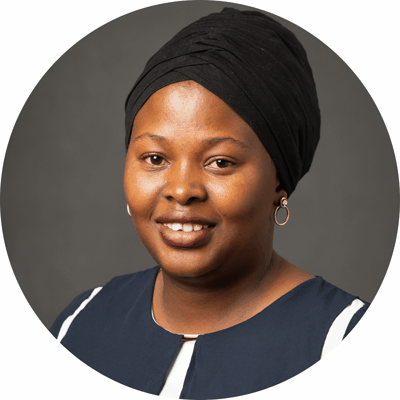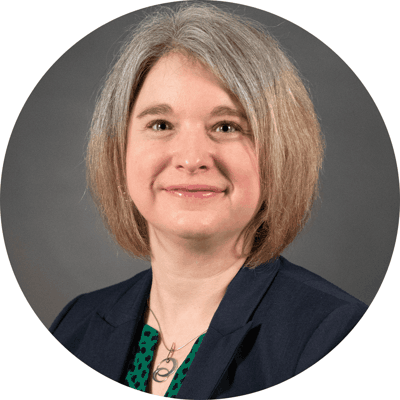LEAD Reverse Mentoring Pairs
Fasilat Hassan and Tina Tootle
Fasilat Hassan, DVM, PhD Candidate, and Mentor
 A graduate research assistant at the University of Tennessee Health Science Center, Hassan is a veterinarian with a research interest in the pathophysiology of cardiovascular and renal diseases. She seeks to use her knowledge of disease pathogenesis to develop a novel drug for treating cardiovascular diseases and associated complications.
A graduate research assistant at the University of Tennessee Health Science Center, Hassan is a veterinarian with a research interest in the pathophysiology of cardiovascular and renal diseases. She seeks to use her knowledge of disease pathogenesis to develop a novel drug for treating cardiovascular diseases and associated complications.
Why is mentoring important to you?
Hassan: I believe having the right mentor is important to progress in one's chosen career path. Mentoring avails the opportunity to share ideas and learn from others' mistakes, struggles, and achievements. Mentoring provides adequate feedback, motivation, and guidance.
What do you seek to gain as a reverse mentor?
Hassan: As a reverse mentor, I hope to gain experience with becoming a better mentee to my mentor. By putting myself in their position, I believe I will further understand the struggles, intricacies, and challenges that accompany being a mentor. Being in this role will also further prepare me to successfully serve as a mentor to younger generations by learning from a more experienced person who will be acting as my reverse mentee.
Fasilat Hassan is a member of American Society for Pharmacology and Experimental Therapeutics, a FASEB member society.
Tina Tootle, PhD, Mentee
 Tootle is an anatomy and cell biology professor and director of the Biomedical Sciences: Cell and Developmental Biology Graduate Program at the University of Iowa. Her research interests focus on understanding the mechanisms of prostaglandin signaling.
Tootle is an anatomy and cell biology professor and director of the Biomedical Sciences: Cell and Developmental Biology Graduate Program at the University of Iowa. Her research interests focus on understanding the mechanisms of prostaglandin signaling.
Why is mentoring important to you?
Tootle: Mentoring is important to me because it provides multiple perspectives from individuals at different points in a career path that can guide the mentees' actions, progress, and development.
What do you seek to gain as a reverse mentee?
Tootle: In the reverse mentoring program, I seek to gain the insights and perspectives from a more junior scientist, which will help me to better support the needs of trainees, postdoctoral fellows, and junior faculty.
Tina Tootle is a member of three FASEB member societies: American Association for Anatomy, American Society for Biochemistry and Molecular Biology, and Genetics Society of America.